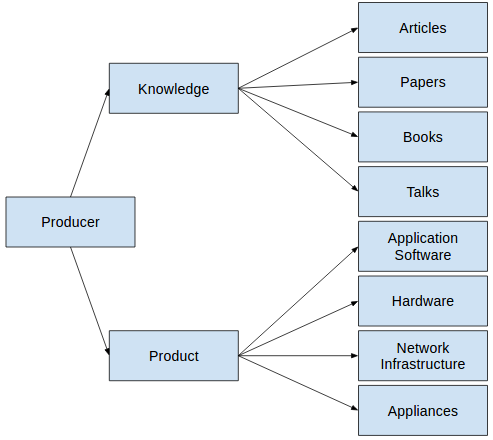on
Random
Why Reading Matters
Among my coworkers in Bukalapak, there’s this young security enthusiast who’s quite a fast learner. Yet, he seems to be struggling to keep up with what he expected out of himself in terms of technical and analytical skills.
I only had one advice for him, “Read more.”
Learning Styles
As we might have learned at some point in our lives, different people might have different approaches to learning. The learning styles[1] consists of visual, auditory, and kinesthetic learning.
Some who stand with the learning style theories might object with the advice to simply read more. The reason is that not everybody is a visual learner, and those who are not should learn with other ways better-suited to them. So, why force ourselves to read when we learn better from verbal methods or experiencing things directly?
I’m not really a believer of the learning styles theory, and according to an article by Cedar Riener and Daniel Willingham[2] there’s no solid proof for the learning styles theory based on conducted experiments. But I’m no expert in this topic, so I’m going with the assumption that the learning styles theory is true here.
Product and Knowledge
I’m using the context information technology industry with product vendors, documentations, and open source software to make my point here. This is mostly because it was discussed in a group consisted of people who work as engineers in IT industry and IT security professionals.
In the context of information technology industry, product vendors produce usable products such as an application software. This products might be sold commercially, or released for free (either as in freedom or as in gratis).
Besides the products themselves, the producers also produces the knowledge regarding the products and the principles behind them. The producers may choose to share all of the knowledge to the public or only some of it, depending on the nature of the organizations and their products.
Those who share the knowledge might put them in the form of articles, papers, books, video tutorials, seminar talks, and many others.

One might argue that different people have different learning styles attributed to them. But in many cases, the best resources one can have for knowledge will be laid in the form of texts and diagrams to describe flows and concepts behind a product.
For people who prefers auditory learning style, podcasts might be preferable instead of texts. The flow and concept diagrams might be explainable using video as a medium instead explained with texts in articles. But the cost of sharing the knowledge via these mediums are considerably more expensive compared to simply writing it down. The cost of producing the materials and storing the recorded data would be higher compared to storing texts with some images, so is the cost of transmitting them over networks.
For people who prefers kinesthetic learning style, diving right into tinkering with the system they want to learn might appeal more. Yet, simply tinkering with the system without using any other source of knowledge would end up with us stuck pretty soon if we don’t have any adequate prior build up of relevant knowledge. We might end up wasting a few days or weeks figuring out something that we can understand in a few hours if we spend the time properly studying the documentations and relevant concepts regarding the system, either through reading or through recorded talks.
Conclusion
As I mentioned before, I’m not a believer of the learning styles theory. But I won’t deny that the learning styles might be useful depending on context, instead of depending on the learner’s preferences.
I see that in the context of IT works and computer science, reading is a crucial part of the learning process. Avoiding to read due to learning style preferences might put us in a disadvantage and end up handicapping us. It’s due to the nature of the field that relies on knowledge, and the cheapest way to store and transmit knowledge is using texts.
It’s perfectly fine to use other means of learning, but neglecting reading would end up harmful in the long term.
On other fields such as music and sports, auditory and kinesthetic styles might trump visual learners who spends too much time reading. Every field has its own nature, and how its practitioners should improve themselves highly depends on it.